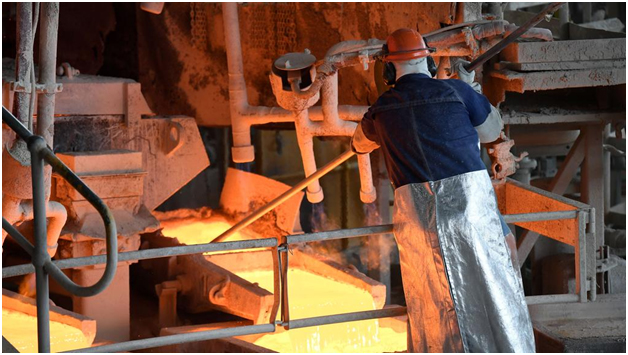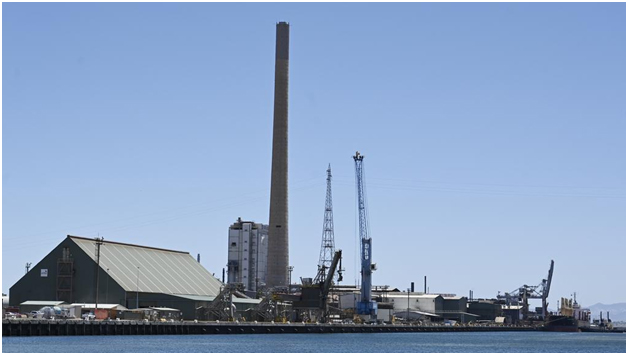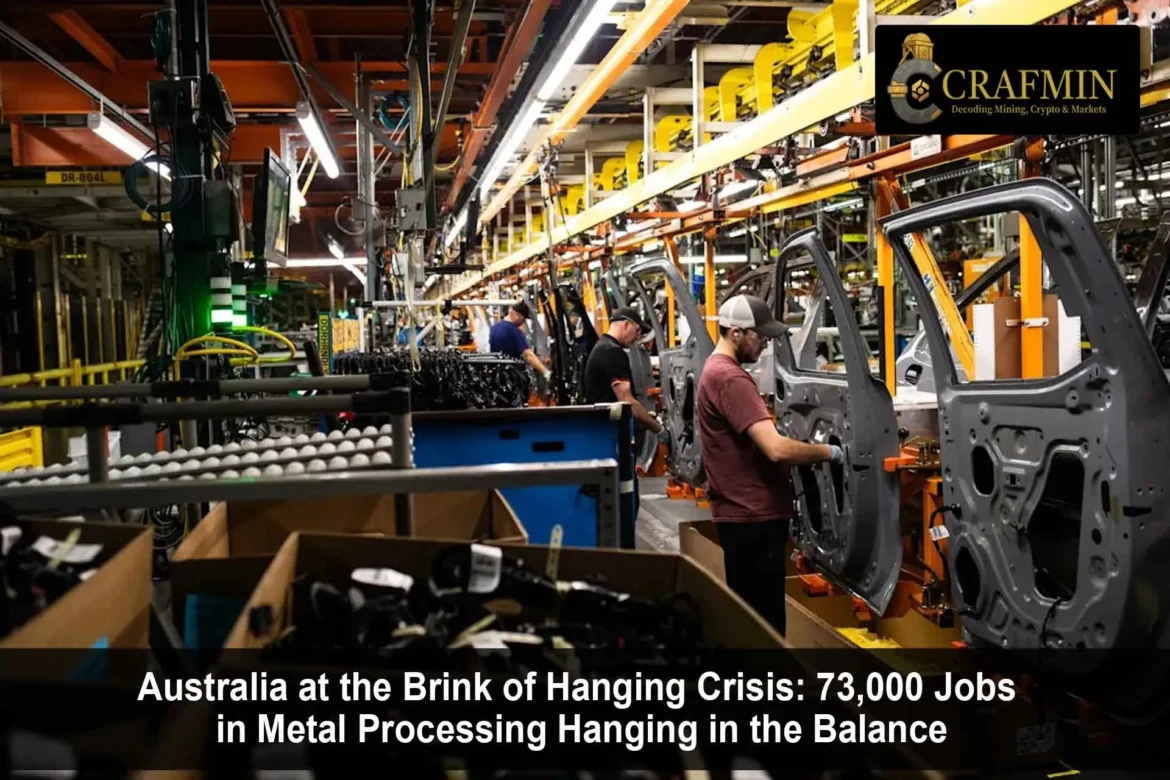
Picture: NewsWire / Dan Peled
A single independent think tank, the McKell Institute, has published a report that has sent one alarm bell clanging: Australia could lose up to 73,000 regional metal smelting and refining jobs if action is not taken. The warning measures outstanding risks for entire communities, shrinking local economies, and a strategic policy chasm inviting foreign competition.
The Risk in Numbers – Real People, Real Impact
Per this report, metal refiners, such as lead, copper, and nickel, also are under increasing pressure. Chinese competition, for example, is able to refine at much lower costs, in some cases hundreds of billions of dollars in government subsidies. If these declines continue:
Port Pirie could see up to 11% of its people go in the next 10 years.
Towns could entirely lose their skilled workers, see school roles declining, and local services collapsing.
Communities built up around smelter paychecks could struggle to even retain basics like grocery stores and medical services.
Voices from Town – Human Stories Behind the Crisis
Walk into any café or pub in Port Pirie and you’ll hear stories of late-night tension. One local contractor summed it up simply:
“If that smelter closes down, I don’t just lose my contract business. I lose my neighbors, my kids’ friends—it’s not industrial, it’s identity.”
Likewise, educators and medical professionals were concerned about future staffing requirements if the area’s industrial base would be destroyed. “We’ve had transitions in the past, but this one has an existential flavor,” expressed a veteran of the area.
What’s Behind the Retreat – Freemarket Fairness or Field-Levelled Inequality?

Picture: NewsWire / David Mariuz
The McKell report blames world subsidy distortions and ageing domestic infrastructure. Overseas refineries receive direct government subsidies, but in Australia, processing is now too expensive jobs. The price of energy, arrears maintenance, and underinvestment chisels away at further.
Lacking policy action or even an acknowledgment that metal processing is a strategic industry, the analysts forecast the future course will be one of irretrievable decline.
Economic Pulse – Why This Matters Outside of the Smelter
Australia’s reputation as a miner has been based on raw material exports for decades. But strength—and value—comes in being able to process those materials at home. Regional processing retains revenue onshore, increases exports, and benefits local economies.
Thin margins talk aside, the report makes a case that is impossible to resist: process here, or lose control of industry direction forever.
What Experts Say – A Call for National Strategy
It’s a policy and economic consensus that brings together: put this under the carpet, and regional Australia falls apart. In order to maintain key industries as whole, the report advises:
- Federal designation of key metals such as lead, copper, nickel as national strategic assets.
- Multi-year grants designed to create upgrades.
- State-federal simultaneous stimulus packages for smelters categorized as high-risk.
- Increased regulatory incentives for clean technology and processing energy efficiency.
- Workforce transition programs, especially for displaced workers shifting into the employment of critical minerals.
Political Ripples – Federal & State Responses Emerge
Queensland and South Australian politicians have jumped on the jobs report. Some regional MPs are demanding faster commitment to investment and grants-in-advance for infrastructure.
Federal decision-makers are under increasing pressure to move. Through tax breaks, equity finance, or expedited approval, ministers acknowledge it is essential to stem the tide before villages disintegrate.
Also Read: Speakman Wants AI in Schools. Here’s What That Means for NSW
Industrial Reality – Canters, Chemists, Coders
It’s not only the smelter employees that are exposed. Truck drivers, laboratory technicians, catering contractors, and the logistics companies are all part of a web. An alteration in the world away from Australian-produced copper or nickel would send waves through the web—and quite likely have the communities that depend on it tied in economic stagnation.
Green Transition Angle – Metal Refining Isn’t Going Away
Clean energy future? That takes humongous quantities of battery metals. Losing refining capacity in Australia would make future supply chains outside Australia’s waters. Mining players and investors move to places with industrial capacity to underpin ESG credentials.
The McKell report testifies: policy certainty and industrial investment now could lock in Australia’s position in global clean-tech markets.
Australia at a Crossroads – Resilience or Retreat?
Here’s what happens next—or might. Decision-makers have the choice:
Step up with industrial policy and rescue processing jobs—and whole towns.
Or do nothing and watch processing capacity disappear, export value decline, and community resilience erode.
If Port Pirie and similar cities deteriorate, it is not merely economics—it is national reputation. This is about whether Australia will lead critical minerals or watch from the sidelines of it.
What Now? Next Steps to Watch
| Action Item | Purpose |
| Federal Review Committee | To assess need for industry support or subsidy frameworks |
| State Funding Considerations | Tax relief, infrastructure grants, feasibility studies |
| Local Workforce Reskilling | Preparing affected workers for green job transitions |
| Investor Engagement | Highlighting value-added processing projects to attract capital |
Last Word – A Nation Parses Its Priorities
This 73,000-employee warning is not a policy crisis—it’s a crisis of communities. What Australia does today will ring out across decades: Will it act on onshore processing, regional sustainability, and strategic industry control?
Or do nothing and see critical refining whittle away incrementally, and with it the towns and jobs that once flourished?
The McKell Institute wake-up call is being felt—and responded to. Australia’s future for metal refining will be less steel and more one of whether policymakers respond to the wake-up call—and act.

